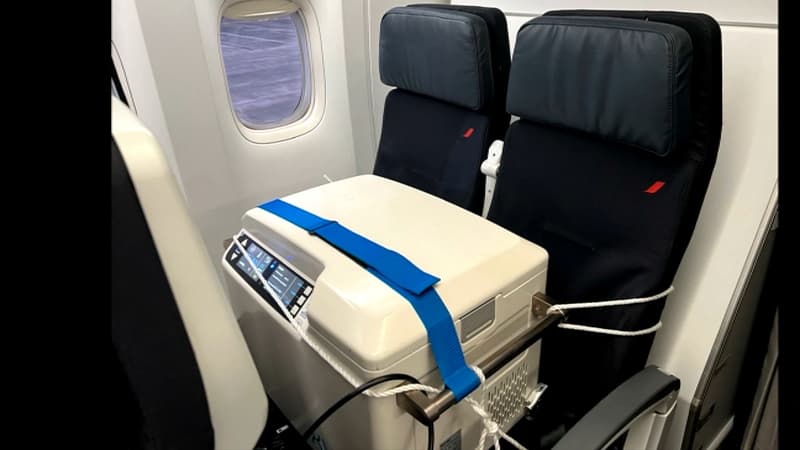A scientific feat. In January 2024, a heart was successfully transplanted in Paris after traveling the approximately 6,700 kilometers that separate the Antilles from France. In total, the organ was preserved for twelve hours, an achievement since current techniques only allow a heart to be preserved in good condition for a few hours.
“A heart transplant is a race against time. The heart cannot stop for more than four hours and beyond four hours it will not function properly,” Professor Guillaume Lebreton, Pitié-Salpêtrière cardiac surgeon (AP-HP) behind the transplant, tells BFMTV. operation.
“Continuously infuse”
To allow this crossing and transplantation, the organ was placed in a perfusion machine. ex-live. The size of a large refrigerator, this concentrated technology manufactured by the Swedish company Xvivo kept the heart at 8°C and continuously perfused it with blood and oxygen.
“Ce qui change tout avec this machine, c’est qu’elle permet de le perfuser en continu, elle le nourrit en continu. Au total, c’est une douzaine d’heures et le patient a très rapidement récupéré”, explains Guillaume Breton.
The heart traveled in the cabin so that doctors could intervene if necessary. On BFMTV, Théophile Roy, a cardiac surgery perfusionist who participated in the theft, explains, along with a supporting replay, how the machine works.
“We will ensure that the heart remains very cold, that the perfusion rates are correct. We have a benefit in the graft itself, in improving the quality of the grafts,” she states.
This transplant, at the end of which the 70-year-old transplant patient is in perfect health, was carried out as part of a pilot study. Pegasuswhose conclusions were published in an article in The lancet since February 28.
Perspectives that open
Although it is only in the experimental phase, the success of this transplant represents great hope for medicine. “This will allow us to have access to grafts that we currently do not have access to due to geographical and sometimes logistical limitations,” says Guillaume Lebreton.
“It is not uncommon that we cannot take heart samples due to weather conditions or transport times that are too long and incompatible with the transplant,” he adds. To date, the biomedical agency estimates that one in two people waiting for a heart may benefit from a transplant within a year.
Source: BFM TV


